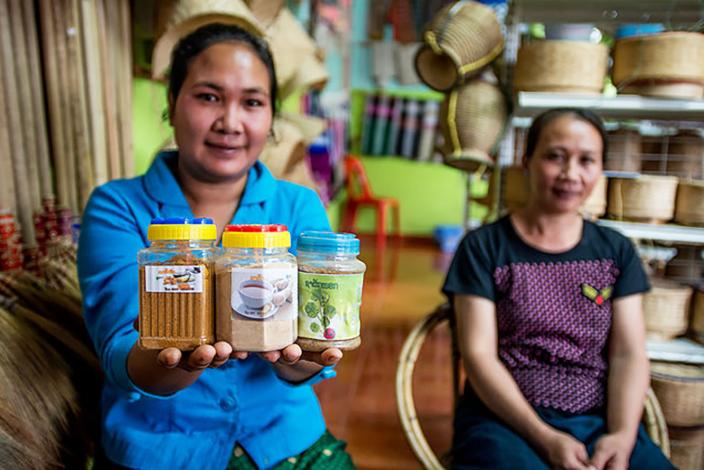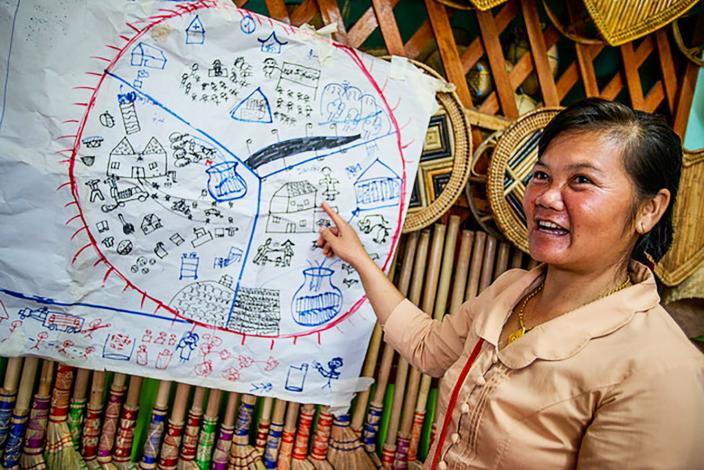“With the help of Oxfam and MHP we gathered a group of 16 women in our village. Everything has changed since then.”
Ms. Chanpeng - A story of change in her own words:
“We’ve faced difficult times here. There were hardly any roads to our village, no health center and the village primary school only covered grades 1, 2 and 3. I used to take care of our children and walk many kilometers to get water from the river. It wasn’t until 2013 that I saw an announcement for a training specifically for women and wanted to join in learning the Gender Action Learning System (GALS). With the help of Oxfam and MHP we gathered a group of 16 women in our village. Everything has changed since then.”
Utilizing the Gender Action Learning System (GALS):
“We started out by painting a journey vision with lots of dreams for ourselves, our families and our community. I and my friends had a lot of dreams for ourselves. For our community we wanted to have a store, many customers and a decent income. As women, we all wanted to become more involved and participate in the community life. And a happy family of course. From there on we worked our way back to the situation back then, thinking about key steps to reach that goal, opportunities and challenges that would arise. It was our very own work plan!”

“As part of the training our group chose to develop tumeric tea production. In our area tumeric is easy to grow and you don’t need much to process it. You just wash and crush it, add water and sugar, and boil it until the tea powder is left. The first year we made 8 million LAK (8000 EUR) selling tea, and we used the money to build a small tea storage facility. That helped to grow sales, and two years ago, with additional support from donors, we were able to build our shop. Our first milestone had been achieved!”
Growth and bigger dreams:
“But we didn’t want to stop just there. Together we started thinking about what other things we could sell in our shop. And we thought of bamboo rice baskets: everybody needs those, right? From that point on, we developed a range of bamboo products, from small baskets to chairs, tables and other furniture. We now sell 45 different products, which helps us make about 300.000 KIP each day. As we buy our products from 48 families, they benefit from the extra income as well. We’d like to even enlarge the number of products offered, but we keep checking very closely on the quality.”
Challenges along the way:
“I must admit that it’s not always easy. 10 of us stopped working in the women’s group because they had to take care of their children and perform other duties in their community. And as a village leader I had to face quite some difficulties because the men were not used to seeing women in the lead.”
A lasting impact:
“But the training from MHP & Oxfam made us so much stronger. Before we didn’t know how to develop a plan or save money to invest. And looking back now, I can say that most of our goals have been achieved. I became a village leader myself and there’s more women participating in temples and hospitals. The shop returns a decent income, although the money we made has been reinvested. And my husband supports me in what I do. He’s even glad that I have a job of my own and a way to help support the family. Our husbands even come to help around the shop sometimes. But we remain in charge!” (laughing).
Additional goals/dreams?
“If we have any dreams left? Well, yes! We’d like to expand income of the shop and use that to buy a car for transportation of products and invest in promotion for our shop. That would allow us to reach beyond our own village.”
